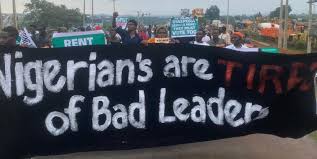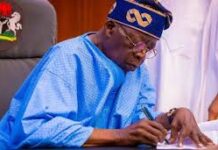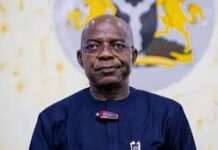The Protest
The October 1, 2024, protests in Lagos and Abuja were a significant event as Nigerians expressed growing dissatisfaction with President Bola Tinubu’s economic reforms, particularly the petrol subsidy removal and the unification of the foreign exchange rates. Citizens gathered under the “FearlessInOctober” banner, demanding better economic policies and calling attention to the soaring living and energy costs that have plunged many into hardship. The protests, which coincided with Nigeria’s 64th Independence Day celebrations, were marked by large crowds in major locations, including Ikeja in Lagos and the Utako area in Abuja.
While the protests were highly visible and impactful, reports indicate that, unlike previous demonstrations, there was no major loss of life or significant injuries. In contrast to the 2020 #EndSARS protests, which saw violent confrontations between protesters and security forces, this event appeared to be more controlled, with security agencies maintaining a watchful but non-confrontational stance. Both Lagos and Abuja saw heightened security presence, but reports from the ground suggest that there was no major escalation, with protesters generally remaining peaceful.
Despite the concerns that initially prompted the protests, the safety of the protesters was a notable contrast to previous uprisings. However, the widespread public dissatisfaction remains, signaling the urgency for the government to address the growing economic concerns. Prior to the protest, there were concerns over a potential crackdown, especially since past protests, like those in August 2024 so the security agencies, including the police, issued warnings to organizers and participants. The Lagos State Commissioner of Police, Olanrewaju Ishola, invited some of the protest’s key figures to a “peace meeting” ahead of the event, emphasizing the need for peaceful demonstrations.
The Organizers
The organizers notable activists such as Omoyele Sowore, a former presidential candidate and the leader of the African Action Congress (AAC), as well as Hassan Taiwo (also known as “Soweto”), who is the National Coordinator of the Education Rights Campaign. These figures are leading the protest against the increasing economic hardship in Nigeria. Sowore, who has long been an outspoken critic of government policies, reaffirmed his commitment to the protest through a series of posts on social media platforms like X, where he rallied citizens to demand better governance despite government warnings and police invitations. Sowore’s history of activism and his role in organizing protests have made him a controversial figure in Nigerian politics. His background includes founding Sahara Reporters, an online news platform known for exposing corruption. Hassan Taiwo, also deeply involved in students’ rights and educational reform, has a history of organizing protests for better educational conditions in Nigeria.
The Future Of Protests
Despite several protests across Nigeria, including the recent #FearlessInOctober demonstration, the Nigerian government’s response has been notably dismissive. Citizens have raised concerns over economic hardship, inflation, and high fuel prices, with activists and other organizers demanding changes. However, rather than addressing these issues directly, the government has often resorted to heavy security measures. Instances like the crackdown during the August protests, where Amnesty International reported fatalities, highlight the government’s inclination toward using force rather than engaging in dialogue. Despite the public’s growing frustration, the government continues to push forward with its economic policies, questioning the impact of these protests and whether they can influence real change. This disregard for the protesters’ grievances raises questions about the government’s commitment to democracy and its ability to listen to its citizens.Protesters wonder if their voices are truly heard or if these demonstrations are being systematically suppressed to maintain the status quo, leaving many Nigerians in a cycle of frustration.








